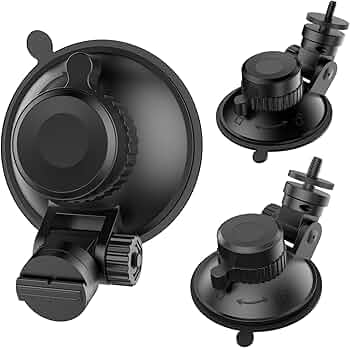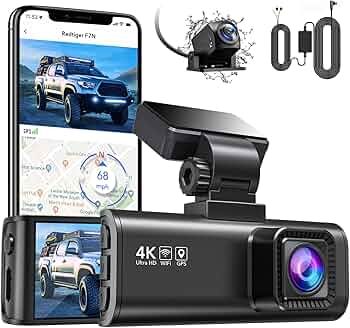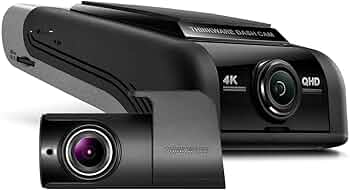The Ultimate Buying Guide for Dash Cameras
Overview
In today's world, having a dash camera in your car has become increasingly important. Whether you want to capture breathtaking road trips or have evidence in case of accidents, a dash camera can be a valuable addition to your vehicle. This buying guide will walk you through everything you need to know to choose the right dash camera for your needs.
Types
1. Single Lens Dash Cameras: These dash cameras have a single lens and capture footage from the front of your vehicle. They are the most common type and provide a clear view of the road ahead.
2. Dual Lens Dash Cameras: Dual dash cameras come with two lenses, one for the front and one for the rear of your vehicle. This type is ideal for capturing incidents from both directions.
3. HD Dash Cameras: HD dash cameras capture high-definition footage, ensuring clear and detailed recordings.
4. 4K Dash Cameras: If you want the highest resolution possible, consider a 4K dash camera. These cameras offer incredibly sharp and detailed footage.
5. GPS Dash Cameras: GPS-enabled dash cameras provide location data along with video recordings, allowing you to track your route and speed.
6. WiFi Dash Cameras: WiFi-enabled dash cameras enable wireless connectivity, making it easy to transfer and view footage on your smartphone or computer.
Key Considerations
1. Video Quality: Look for a dash camera with at least 1080p resolution for clear and detailed footage.
2. Field of View: A wider field of view ensures that more of the road is captured. Aim for a lens with a minimum of 120 degrees.
3. Loop Recording: Dash cameras with loop recording overwrite old footage to ensure continuous recording.
4. G-Sensor: A G-sensor detects sudden movements or impacts and automatically saves the footage, protecting it from being overwritten.
5. Parking Mode: Some dash cameras have a parking mode that activates when your vehicle is parked, providing surveillance even when you're not around.
6. Night Vision: Look for a dash camera with night vision capabilities to ensure clear recordings in low-light conditions.
7. Memory Card Capacity: Consider the dash camera's compatibility with high-capacity memory cards to store more footage.
Features
1. Motion Detection: Dash cameras with motion detection start recording automatically when they detect movement in front of the vehicle.
2. Accident Footage Lock: This feature locks and protects footage recorded during an accident to prevent it from being overwritten.
3. Voice Control: Some dash cameras offer voice control functionality, allowing you to control the camera hands-free.
4. Speed Stamp: A speed stamp feature displays your vehicle's speed on the recorded footage.
5. Smartphone App: Look for dash cameras that come with a dedicated smartphone app for easy control and footage management.
Prices
Dash camera prices vary depending on the brand, features, and video quality. Entry-level models can range from $50 to $100, while high-end models with advanced features can cost upwards of $200.
Tips
1. Ensure proper installation to maximize performance and minimize distractions.
2. Regularly format the memory card to avoid storage issues.
3. Opt for a dash camera with a capacitor instead of a battery for better performance in extreme temperatures.
4. Consider investing in a high-quality memory card to ensure reliable and consistent recording.
FAQs
Q: Are dash cameras legal?
Q: How long can a dash camera record?
Q: Can I use a dash camera at night?
Q: Can I transfer footage wirelessly from the dash camera to my smartphone?
Q: How do I install a dash camera in my car?
A: By optimizing your buying guide with these keywords and providing valuable information, you can increase its visibility in search engine results and attract more readers.














